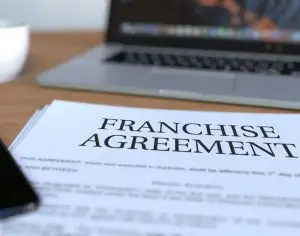The debate around e-signatures is not new and the COVID pandemic certainly forced us to review our processes and accept alternative ways of working of which we may have been suspicious previously. So much of what we do now is done remotely including signing documents. Talking about documents, given the advances in technology, is there any reason why franchise agreements cannot be signed electronically?
In very simple terms, under English law a binding contract does not require much formality except in some limited circumstances, where the law requires the contract to take a certain prescribed form called a deed. In the absence of a statutory requirement, most agreements will take form of a simple contract. As far as franchise agreements are concerned, there are no specific formalities which apply to franchise agreements and therefore the usual rules of common law on contract formation will apply.
One of the basic requirements for a valid contract to exist is the requirement of consideration. This means that each party to the contract must be receiving a benefit – in a franchise agreement this translates as the franchisor receiving a sum of money and the franchisee is receiving the right to use the franchisor’s brand, training and support.
The complexity arises where the franchisee is a corporate entity (i.e. a limited company or a limited liability partnership) and where the franchise agreement contains a guarantee from the individual behind the corporate entity wherein the individual guarantees performance of financial and other obligations of the said corporate entity. In such a case, the franchisor is receiving the benefit of the guarantee from the individual, but the individual, on the face of it, is not receiving any consideration in return. This would mean that the requirement for consideration is not fulfilled. The workaround to make the guarantee valid, is for the guarantee to be executed as a deed (rather than as a simple contract) because deeds are valid without consideration. To be executed as a deed, the document must be signed in the presence of a witness and at the moment, despite advances in technology, practically this means that the witness must physically be present with the signatory in the same location and cannot therefore witness signature remotely.
So what does this mean for franchise agreements? Well, there are essentially two options, namely:
- The franchise agreement, if it contains an individual’s guarantee, must be executed as a deed and therefore cannot be signed electronically.
- The guarantee can be separated from the franchise agreement so that franchise agreement itself can be signed electronically and only the guarantee must be signed in paper form (which can then be scanned and kept electronically).
If choosing to use the second option, it is not just a simple matter of removing the guarantee from the franchise agreement but the franchise agreement will need to be carefully checked to ensure that it has been drafted properly in that it refers to the separate guarantee, makes the signing of the guarantee a prerequisite for the franchise agreement and contains the right for the franchisor to terminate the franchise agreement in the event that the guarantee is not signed within the prescribed timeframe.
The above may, of course, change as discussions around electronic execution of documents continue.


































